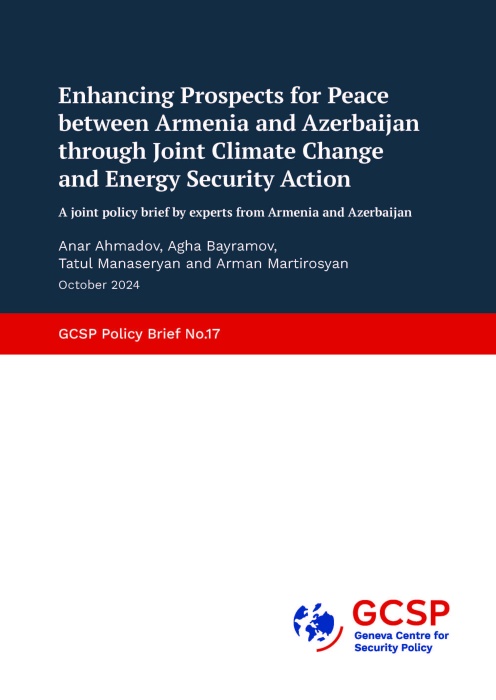Enhancing Prospects for Peace between Armenia and Azerbaijan through Joint Climate Change and Energy Security Action
A joint policy brief by experts from Armenia and Azerbaijan
Introduction
This Policy Brief outlines practical ways in which environmental and energy cooperation between Armenia and Azerbaijan could foster regional stability and peace amid the looming impacts of climate change. Collaboration on shared resources could mitigate the negative impacts of cross-border environmental challenges while fostering mutual trust, thereby reducing the risk of future conflicts. Joint efforts to produce and transmit renewable and non-renewable energy resources could further promote regional stability by strengthening energy security and deepening economic interconnectivity.
Joint action on climate change is becoming increasingly urgent in the South Caucasus, especially between Azerbaijan and Armenia. Both countries face serious economic, social, and political risks from climate impacts, including rising temperatures, reduced precipitation, desertification, extreme weather, water scarcity, and the spread of diseases. Armenia and Azerbaijan are also likely to face challenges affecting energy dependence and security, although in different ways. These challenges are likely to strain resources, heighten tensions, and increase the potential for conflict within and between these two nations. To mitigate climate change impacts, enhance energy security, and reduce the risk of conflict, cooperation is crucial, particularly as Armenia and Azerbaijan navigate a fragile post-conflict environment.
The Policy Brief proposes five actionable policy options to promote environmental and energy cooperation. Their implementation would create platforms for government representatives, experts, and civil society members and organisations to jointly study, deliberate, and negotiate through technical and economic communication channels, fostering mutual understanding, confidence building, and reconciliation through shared problem solving.
After discussing these policy options, the Policy Brief concludes by summarising the key take-aways from this important discussion.
Disclamer: The views, information and opinions expressed in this publication are the authors’ own and do not necessarily reflect those of the GCSP or the members of its Foundation Council. The GCSP is not responsible for the accuracy of the information.


